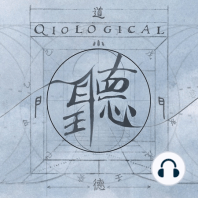6 min listen
091 Hands on Medicine • Josh Margolis
ratings:
Length:
74 minutes
Released:
Jun 25, 2019
Format:
Podcast episode
Description
When I was a kid it was easy to smell a snow storm coming, or to be able to feel how the wind shifted and the light in the sky meant that you’d better take cover as a thunderstorm was maybe, if you were lucky, 20 minutes away. Us humans have the ability to sense deeply. And if you don’t’ think that’s true, reflect on the last time you knew there was trouble in your relationship, but when you probed your partner said, “nothing.”Us humans have extraordinary abilities to sense deeply. Actually, these abilities are not extraordinary, they are just not in this day and time ordinarily used. As conventional medicine relies on the “evidence based” objective tests, and we in the Chinese medicine community have our own questions, theories and processes that prescribe how we use our sensing to determine what is going on for our patients.In this conversation we go deeply into sensing. Into trusting our first impressions, and how listening attentively with our touch and presence can lead us to places where our patients need attention, even if they are not themselves aware of it. And even if it at first makes no sense to us either.Listen into this conversation that explores the crossroads of Chinese medicine and old-school osteopathy.Head on over to the show notes page for more information about this episode and for links to the resources discussed in the interview.
Released:
Jun 25, 2019
Format:
Podcast episode
Titles in the series (100)
Welcome to Qiological by Qiological Podcast
